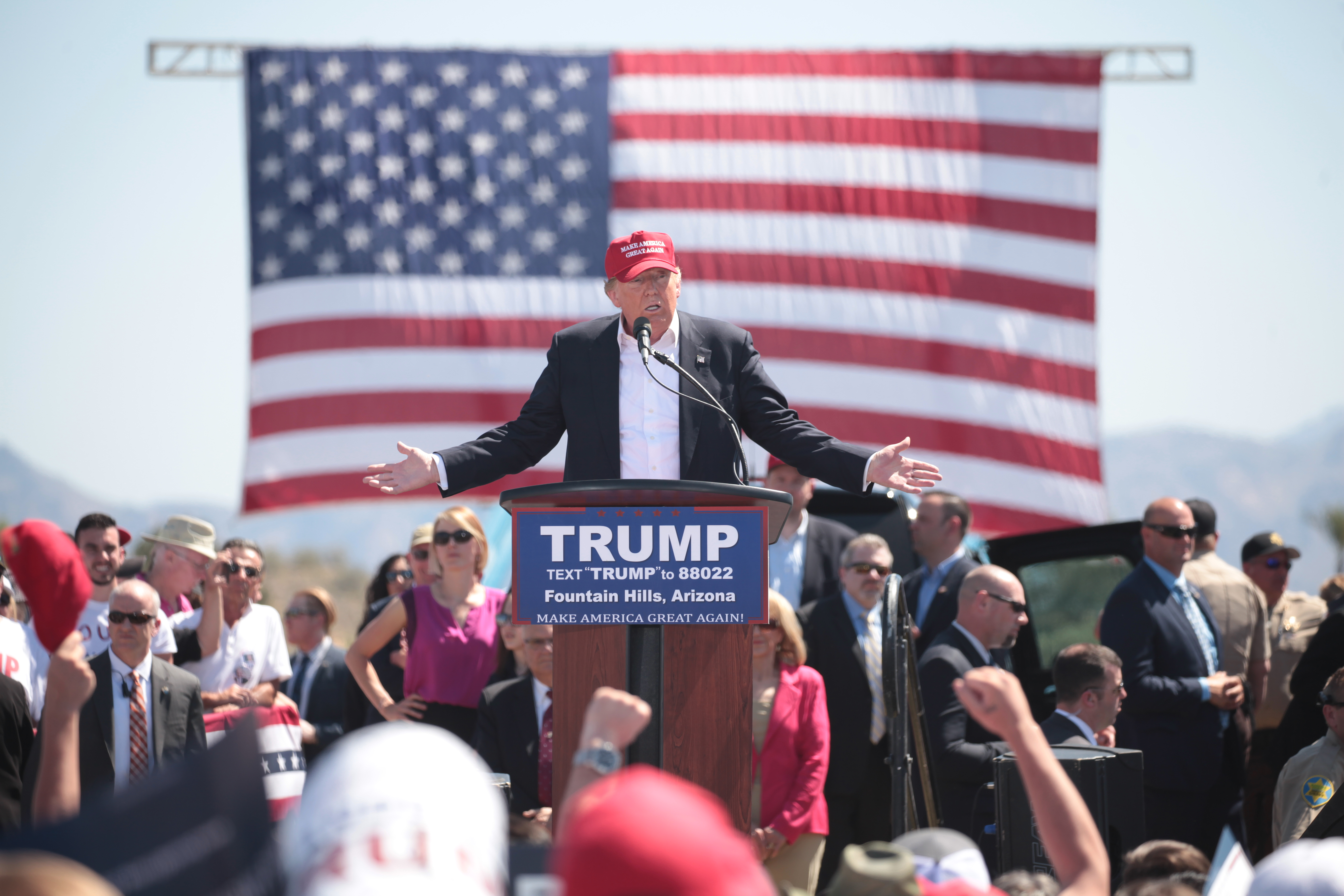On June 13, presumptive Republican presidential nominee Donald Trump opened a new chapter in his controversial campaign by declaring his campaign will no longer issue press credentials to The Washington Post. Justifying his decision, Trump slammed the Post’s coverage of his campaign as “incredibly inaccurate,” and called the paper “phony and dishonest.”
Trump’s decision seems to come in response to a Post headline published earlier that day, “Donald Trump suggests President Obama was involved with Orlando shooting.” Later, the Post changed the headline to “Donald Trump seems to connect President Obama to Orlando shooting” — doing so without notice or prompting by the Trump campaign.
Trump’s decision to bar Post reporters from any campaign events might not attract the same attention as that of his comments on Mexicans, Muslims and prisoners of war. But it is evidence of his open disdain for the First Amendment right of freedom of the press, possibly the most dangerous and un-American of his beliefs.
In evaluating Trump’s decision, we should ask whether The Washington Post (or any of the other media outlets Trump has banned, including Politico and The Huffington Post) have reported inaccurately or dishonestly on him or his campaign. The answer here, at least based off of several hours of my skimming through reports by these publications, is simply no. Importantly, Trump and his campaign have failed to provide any specific instances of inaccurate reporting.
It is more likely that Trump is upset over the Post’s intense scrutiny of his campaign operations, policy proposals and business practices, and that this latest incident provides him the cover he needs to ban one of the most respected newspapers in the world from receiving press credentials.
As a conservative and a Republican, I will be the first to tell you that the mainstream media (The New York Times, The Washington Post, NBC, ABC, etc.) has a liberal bias. In general, I would say the media has scrutinized Donald Trump far more than they have Hillary Clinton, Bernie Sanders or any other presidential candidate.
But scrutiny, however harsh and intense, is the indispensable role of a free press and is legitimatized by the institutional protections that have made our country the longest standing democracy in the world.
Trump’s actions against The Washington Post are the latest of his long string of attacks on the media, not only on individual journalists (Megyn Kelly, Serge Kovaleski and others), but also on libel laws: “One of the things I’m going to do if I win … I’m going to open up our libel laws so when they write purposely negative and horrible and false articles, we can sue them and win lots of money.”
One could only imagine what would happen if Trump became president, with the power of the Justice Department behind him to squash media criticism. Would he jail those who criticize him, as Turkish President Recep Tayyip Erdoğan has? Perhaps he might take a note from his friend Vladimir Putin, who has succeeded in a near-total takeover of his country’s media.
If Trump can’t handle the scrutiny of a free press, he should find another country to lead or drop out of the race. The First Amendment, as the cornerstone of our free society, is far more important and valuable than anything he could contribute to this country.
Sam Wallace is a public policy graduate student. He can be reached at samhwallace@gmail.com.



